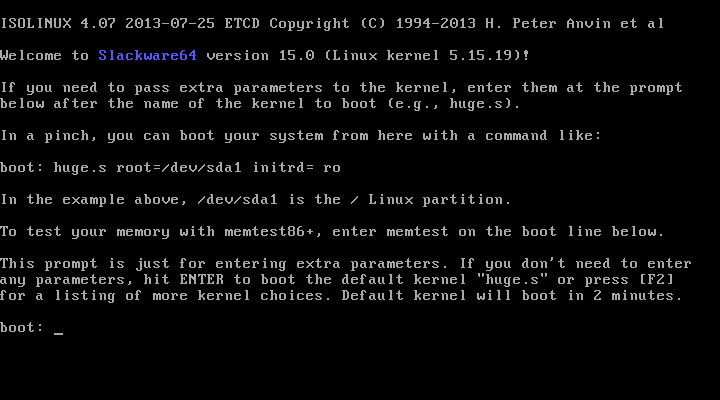Slackware 15.0 is out today, this is the first new version of one of the oldest Linux operating system distributions since Slackware 14.2 was released in July of 2016. The first version of Slackware was released 28 years ago in 1993.
Patrick J. Volkerding announced Slackware 15.0 with this message:
Well folks, in spite of the dire predictions of YouTube pundits, this
morning the Slackhog emerged from its development den, did *not* see its
shadow, and Slackware 15.0 has been officially released – another six
weeks (or years) of the development treadmill averted.This has been an interesting development cycle (in the “may you live in
interesting times” sense). Anyone who has followed Linux development over
the years has seen the new technology and a slow but steady drift away from
the more UNIX-like structure. The challenge this time around was to adopt
as much of the good stuff out there as we could without changing the
character of the operating system. Keep it familiar, but make it modern.
And boy did we have our work cut out for us. We adopted PAM (finally)
as projects we needed dropped support for pure shadow passwords. We switched
from ConsoleKit2 to elogind, making it much easier to support software
that targets that Other Init System and bringing us up-to-date with the
XDG standards. We added support for PipeWire as an alternate to PulseAudio,
and for Wayland sessions in addition to X11. Dropped Qt4 and moved entirely
to Qt5. Brought in Rust and Python 3. Added many, many new libraries to the
system to help support all the various additions. We’ve upgraded to two of
the finest desktop environments available today: Xfce 4.16, a fast and
lightweight but visually appealing and easy to use desktop environment, and
the KDE Plasma 5 graphical workspaces environment, version 5.23.5 (the
Plasma 25th Anniversary Edition). This also supports running under Wayland
or X11.We still love Sendmail, but have moved it into the /extra directory and made
Postfix the default mail handler. The old imapd and ipop3d have been retired
and replaced by the much more featureful Dovecot IMAP and POP3 server.The Slackware pkgtools (package management utilities) saw quite a bit of
development as well. File locking was implemented to prevent parallel
installs or upgrades from colliding, and the amount of data written to
storage minimized in order to avoid extra writes on SSD devices.For the first time ever we have included a “make_world.sh” script that allows
automatically rebuilding the entire operating system from source. We also
made it a priority throughout the development cycle to ensure that nothing
failed to build. All the sources have been tested and found to build
properly. Special thanks to nobodino for spearheading this effort.We have also included new scripts to easily rebuild the installer, and to
build the kernel packages. With the new ease of generating kernel packages,
we went on to build and test nearly every kernel that was released, finally
landing on the 5.15.x LTS series which we’ve used for this release. There
are also some sample config files to build 5.16 kernels included in the
/testing directory for anyone interested in using those kernels.There’s really just way too many upgrades to list them all here. For a
complete list of included packages, see:ftp://ftp.slackware.com/pub/slackware/slackware64-15.0/PACKAGES.TXT
Slackware has always been my favorite distribution of Linux. In the 90’s and early 2000’s Slackware epitomized the hacker lifestyle that if you wanted a new piece of software you had to compile it yourself and if you messed something up, that was your fault. It was extremely unfriendly to use and that was perfect for the shitty teenager I was at the time. Fortunately I had some friends who were much nicer and helped when I ran into trouble. Even the install process today has no GUI to help partition your hard drive before the console-based setup program runs, it’s all up to you.
Part of the reason for the delay between releases may be due to Slackware’s Patrick J. Volkerding struggling after getting ripped off by his former business partners. Slackware was never easy, but it is a huge part of the history of Linux and it is a shame that big businesses continue to profit off of this free and open source software without contributing back to the people who made their businesses possible.
See the rest of the announcement for links to download Slackware 15.0.

